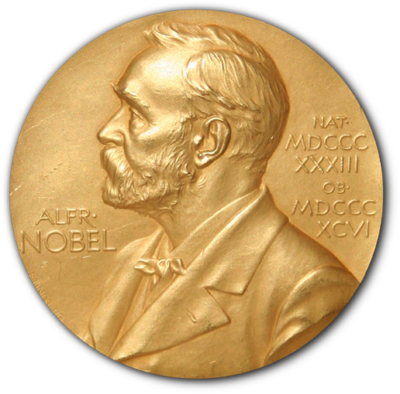
Search
1966 Nobel Peace Prize

The 1966 Nobel Peace Prize was not awarded because the Norwegian Nobel Committee decided that none of the nominations met the criteria in Nobel's will. Instead, the prize money was allocated with 1/3 to the Main Fund and with 2/3 to the Special Fund of this prize section.
Deliberations
Nominations
In total, the Norwegian Nobel Committee received 60 nominations for 26 individuals and 7 organizations such as Vinoba Bhave, Grenville Clark, Danilo Dolci, Trygve Lie, Sarvepalli Radhakrishnan, Harry S. Truman, U Thant, the International Planned Parenthood Federation, United Towns Organisation and the Universal Esperanto Association (UEA). The highest number of nominations – 11 recommendation letters – was for the American statesman Paul G. Hoffman.
Nine of the nominees were newly introduced namely Hideki Yukawa (won the 1949 Nobel Prize in Physics), Jan Tinbergen (won the 1969 Nobel Memorial Prize in Economics), Habib Bourguiba, Joseph Cardijn, Martin Niemöller, Léopold Sédar Senghor, Adam Rapacki, Joaquín Sanz Gadea and Sri Kathiresu Ramachandra. Notable figures such as Vincent Auriol, Kees Boeke, Laura Hughes, Frank Nelson, Sutan Sjahrir and Camilo Torres Restrepo died in 1966 without having been nominated.
Norwegian Nobel Committee
The following members of the Norwegian Nobel Committee appointed by the Storting were responsible for the selection of the 1966 Nobel laureate in accordance with the will of Alfred Nobel:
Notes
References
External links
Text submitted to CC-BY-SA license. Source: 1966 Nobel Peace Prize by Wikipedia (Historical)
Articles connexes
- List of Nobel Peace Prize laureates
- 2024 Nobel Peace Prize
- 2023 Nobel Peace Prize
- 1967 Nobel Peace Prize
- 2019 Nobel Peace Prize
- 1973 Nobel Peace Prize
- 1964 Nobel Peace Prize
- 2016 Nobel Peace Prize
- 2022 Nobel Peace Prize
- 1965 Nobel Peace Prize
- 2020 Nobel Peace Prize
- 1971 Nobel Peace Prize
- 2021 Nobel Peace Prize
- 2015 Nobel Peace Prize
- List of female Nobel laureates
- List of Nobel laureates
- List of Israeli Nobel laureates
- 2018 Nobel Peace Prize
- List of Nobel laureates by country
- List of Nobel laureates in Literature
Owlapps.net - since 2012 - Les chouettes applications du hibou


